IRONMAN ATHLETE & PATAGONIA TRIATHLETE WITH THEMIS POLLALIS | E025 PODCAST
LISTEN TO THIS EPISODE ON ALL STREAMING SERVICES
ABOUT THE GUEST
Themis Pollalis sits down with George Stroumboulis in London, England on the Invigorate Your Business Podcast to talk about all things Triathlons, Ironman Competitions, the Patagonman in Chile, Training and Overcoming Mental Challenges.
Themis (Themistocles) Pollalis is a Greek triathlete residing in London, whose life is an embodiment of relentless determination and athletic prowess. Transitioning from football (soccer) in Greek clubs to conquering over 50 triathlons, Themis champions the philosophy that people have no limits. Notably, he etched his name in history as the first Greek athlete to face the extreme challenges of the Patagonman triathlon in Chile—an arduous 3.8 km sea swim, a challenging 180 km bike ride, and a demanding 42.2 km marathon.
Themis' journey extends beyond the racecourse, weaving through the serene isles of Greece to the vibrant heart of London. Amidst the bustling city life, he navigates a disciplined training routine involving swimming, cycling, running, and yoga. Despite the challenges, Themis remains grateful for the support that has enabled him to push personal limits and inspire a healthier lifestyle.
As he crosses the finish line, Themis' triumph becomes a testament to the indomitable spirit of an athlete who, over the course of several years, transformed from a football enthusiast to a symbol of endurance and excellence in the world of triathlons. Themis Pollalis is a living testament to the remarkable capacity of the human spirit to endure, evolve, and excel.
Themis’ Instagram: https://www.instagram.com/themistoklissbr?igsh=MThjcmwwcTY3M3ZsNw==
“It takes quite a bit of awareness and awakening to decide to do that, because it’s about pushing yourself, pushing your limits, but understanding that there is no limit at the same time.”
MEDIA RELATED TO THE EPISODE
Themis Pollalis sits down with George Stroumboulis in London, England on the Invigorate Your Business Podcast to talk about all things Triathlons, Ironman Competitions, the Patagonman in Chile, Training and Overcoming Mental Challenges.
Themis Pollalis sits down with George Stroumboulis in London, England to talk about his successes, challenges and triumphs as a human and athlete.
Themis Pollalis sits down with George Stroumboulis in London, England on the Invigorate Your Business Podcast to talk about all things Triathlons, Ironman Competitions, the Patagonman in Chile, Training and Overcoming Mental Challenges.
Themis Pollalis sits down with George Stroumboulis in London, England on the Invigorate Your Business Podcast to talk about all things Triathlons, Ironman Competitions, the Patagonman in Chile, Training and Overcoming Mental Challenges.
Themis Pollalis sits down with George Stroumboulis in London, England to talk about his successes, challenges and triumphs as a human and athlete.
ABOUT THE “INVIGORATE YOUR BUSINESS” PODCAST
The Invigorate Your Business with George Stroumboulis podcast features casual conversations and personal interviews with business leaders in their respective fields of expertise. Crossing several industry types and personal backgrounds, George sits down with inspiring people to discuss their business, how they got into that business, their path to the top of their game and the trials and tribulations experienced along the way. We want you to get inspired, motivated, and then apply any advice to your personal and professional lives. If there is at least one piece of advice that resonates with you after listening, then this podcast is a success. New episodes weekly. Stream our show on Spotify, YouTube, Apple, Amazon and all other platforms.
ABOUT GEORGE STROUMBOULIS
George Stroumboulis is an entrepreneur to the core, having launched several ventures across multiple industries and international markets. He has held senior-level positions at progressive companies and government institutions, both domestically and internationally, building an extensive portfolio of business know-how over the years and driving profit-generating results. George’s ability to drive real change has landed him in several media outlets, including the front page of the Wall Street Journal. George was born in Toronto, Canada to his Greek immigrant parents. Family first. Flying over 300,000 miles a year around the world puts into perspective how important family is to George’s mental and emotional development. With all this travel to global destinations, the longest he stays even in the most far-out destination is 3 days or less - a personal rule he lives by to make sure he is present and involved in family life with his wife and three daughters. To read about George’s global travels, stay connected with his blog section.
STAY CONNECTED WITH GEORGE STROUMBOULIS
STREAM & LISTEN TO THE PODCAST:
SPOTIFY: https://open.spotify.com/show/1rW2CmxQoiJNEPOZupJlvd
YOUTUBE: https://www.youtube.com/user/Stroumboulis
APPLE iTUNES: https://podcasts.apple.com/us/podcast/invigorate-your-business-with-george-stroumboulis/id1607693240
AMAZON MUSIC: https://music.amazon.com/podcasts/8fc03929-71b3-483a-a64e-153e30b3d462/invigorate-your-business-with-george-stroumboulis
iHEARTRADIO: https://www.iheart.com/podcast/269-invigorate-your-business-w-92187370/
STROUMBOULIS SITE: https://www.stroumboulis.com/podcast
PODCAST SITE: http://www.invigorateyourbusiness.com
FOLLOW GEORGE STROUMBOULIS:
INSTAGRAM: https://www.instagram.com/georgestroumboulis/
YOUTUBE: https://www.youtube.com/user/Stroumboulis
LINKEDIN: https://www.linkedin.com/in/Stroumboulis/
TWITTER: https://twitter.com/Stroumboulis
FACEBOOK: https://www.facebook.com/georgestroumboulis
TIKTOK: https://www.tiktok.com/@georgestroumboulis
CONTACT GEORGE DIRECTLY: https://www.stroumboulis.com/connect
FULL SHOW TRANSCRIPT
George Stroumboulis - Host 00:00
This episode comes from beautiful London, England. I get to sit down with an amazing individual who is Greece's first ever citizen to complete the Patagonia Ironman Challenge, which, by the way, includes 3.8 kilometers of swimming, 180 kilometers of cycling and 42 kilometers of running Absolutely insane. We're going to talk about his stories, about the ups, the downs, how he got into this and what are his next moves. So enjoy this episode of Invigorate your Business coming from London, England, starting now.
George Stroumboulis - Host 01:31
My name is George Stroumboulis and I'm extremely passionate about traveling the world, meeting new people and learning about new businesses. Join me as I sit down with other entrepreneurs to learn about their journeys. This episode of Invigorate your Business starts now. We're going to start this. Yeah, First of all, we're in London, England. That's right. Right, your new town, your hometown. You've been here. I'm excited to be here. It's such a cool city, always rainy, but it's just like a New York meets a Paris, right, and it's yeah, it's a cool vibe, so we're going to get into everything. So Femmi's Polaris is a big deal in this whole triathlon Ironman Patagonia world right, Like just extreme, extreme sport, right, and just pushing your bodies to the limit. We'll get into it. But you are Greece's first and only citizen to have ever done the Patagon Xtreme Ironman.
Themis Pollalis - Guest 02:38
So basically I was up to this year. Okay, I was the very first that was selected through a ballot that takes place. There's quite a few tickets that people would get.
George Stroumboulis - Host 02:55
Like a lottery. Like a lottery yeah.
Themis Pollalis - Guest 02:57
And it was an honor to be one of the likey ones to get this honor and, yeah, it was the very first to ever participate and I had the honor to be the very first one to finish. I had also the honor and I felt grateful for motivating other Greek athletes and a week ago, this past Sunday, it was the fourth edition of Patagon man where three Greeks actually participated and I've been in contact with all of them and they all completed, so the Greek flag was again up in Patagonia.
George Stroumboulis - Host 03:38
That's amazing.
Themis Pollalis - Guest 03:40
So it was a very emotional moment.
George Stroumboulis - Host 03:44
That's a big deal. So we're going to put up the video as well and photos and everything, so people could see, yeah. And then for the listeners that aren't watching it on YouTube and here, we'll share the links as well and like Spotify so people could see. We're going to get into that. So many questions about how you got into this, like how can your body handle these extreme? You know conditions right. Like, let's rewind when are you from and how did you end up here in London?
Themis Pollalis - Guest 04:10
Okay, so I'm from a Greek island, Evia. For people that they don't know, Evia, it's the second largest island in Greece after Crete. Some people cannot even actually locate Evia on the map because it's so connected to Athens mainland, magical place. And now we're away from the Athens airport. I'm 32 years old. I was born, grew up in Evia and at the age of 19, I decided I want to move to a more diverse place and I had a few friends that used to live here. I used to come quite often. I had quite a few people that I knew. I knew that I had cousins, family living in Canada, like yourself, in New York, and everything. So I was always thinking, my God, I have people that they live overseas. So that was a you know, athens was too small for you, right, like you wanted to do more.
05:18
Yeah, I wanted to be somewhere where I can connect with different like-minded people, and that's what made me realize I want to move from that island, which I love and I love.
George Stroumboulis - Host 05:33
Gorgeous island for the listeners Like Evia. Greece doesn't get enough credit, right. People always think of Greece for outside and it's always like the popular Santorini and Mykonos and Crete and Corfu, but like Evia is still a hidden gem. You can drive there from Athens an hour hour and a half and it's still underdeveloped. Right, like there's so many resorts that need to go there and build it up. And like the beaches are beautiful. It's facing the Aegean Like it's just such a beautiful. Obviously, I'm biased as well, because my father's from there. Yeah, it's a beautiful island. So talk to me. You moved to London, you study, you've done various things. You're a real estate professional here, selling high-end properties, the rental market Like it's just an insane market here, and your past is used to be in the yacht business as well, right, and high-end clients. So talk to us about that transition of being in the yacht space, right. And then how COVID affected that and how you pivoted.
Themis Pollalis - Guest 06:37
Yeah. So again I came when I was 19. I have started business and management. I've started doing a masters in shipping. It's a dream of every Greek kid to do any sort of studies in the ship, who have such a big industry. I realized shipping wasn't really the right path for me, so I skipped that, having done various jobs, getting into real estate initially. Then I had a strong connection with yachting.
07:08
I grew up in in in Evia, in a flat overlooking the harbor. You know where I live, yeah, and I would see all these boats. So I would go down and talk to all these people. I'm like, where are you coming from? I'm like, oh, I come from Australia and I'm like, how they're like on this boat. So it was fascinating to hear all these and meet all these people and I made it clear to my head that instead of shipping, I'm going to do your thing. So in shipping, you have the cargo vessel and you have to transport any goods and I'm like I'll do the same with people. I have a vessel which is a boat, a yacht, and I'll transport people that they enjoy having fun on board a beautiful boat. And that's what happened at the age of 25. 25.
George Stroumboulis - Host 07:53
You started your own brokerage essentially right and your clientele was impressive. Obviously, you don't want to name names, but your clientele was like very wealthy, very successful, not just from Greece, from the UK, from around the world. So just talk to us a bit about that and specifically like Miko Noss and what you were doing there, I mean obviously it's a pretty fascinating world for many people just thinking that you know there's boats that they cost some crazy six digit numbers that you can rent and charter for a week.
Themis Pollalis - Guest 08:31
I don't do that anymore. I will discuss about this but I was in Miko Noss and I was the main point of contact for certain wealth individuals where they would call me and they would need to charter a boat and what I would do? I would they would fly over and they would choose a certain yacht that would communicate, will share presentations, etc. I would be there to inspect the boats and everything and they would embark there and then they would go off to explore the beauty of the Greek islands. There's so many. There's around 227 inhabited islands and over 4,000 inhabited so it's the best way to explore the beauty of those islands ideally the islands Absolutely On board a yacht. That's how it started. Did that for five years, yes.
George Stroumboulis - Host 09:28
Really quick before we get to the COVID and how that affected it. Like, give us some ideas. Like we're talking massive yachts down to smaller ones. But what are some of the craziest requests where you're like I can't believe this person is paying this much for this? What are some numbers that you've seen?
Themis Pollalis - Guest 09:45
I had requests from an ultra-wealthy family from Latin America I can't name, but it was a family there that they requested a five cabin super yacht and they had a budget of a million euros for 10 days.
George Stroumboulis - Host 10:10
A million for 10 days yeah.
Themis Pollalis - Guest 10:14
I was laughing because I thought it was a fake request. But then I called the person I was communicating that charter and he said that's a real request. Please do not question my request again. Oh my, I'm like okay, something like that does exist actually in this world. Did you get that business? I did, wow, I did. But it's complicated because I would work with other individuals that they are centrals of those boats and they work with the main agents of the boat. It's a whole process like how to shores the boat and everything, the yacht. I would say that was the biggest charter we were about to do.
George Stroumboulis - Host 11:06
That's insane and really quick, just talking about, like Miconos. What is Miconos to you? Obviously, when you're younger, parting there, but then, from a business standpoint, you did a lot of business there, from luxury rentals and yachts and everything. What does Miconos mean to?
Themis Pollalis - Guest 11:23
you. Miconos is such a unique place. It's an island where you can explore everything, so it has that element of authenticity serving any kind of request. So simple, authentic, wide, dry, cyclical island, at the same time a place where every single jet setter as we say they would come to Miconos all over the world. For me, it's a combination of so many feelings and emotions. It's a place where you can go and detox. There's so many places where you can go and find an isolated beach and truly detox and connect with nature. You can go on the north side of the island and you can see 20 super mega yachts mooring there, hollywood stars parting on the other side. Then you go on the west side of the island and you're in a village, next to a Greek local monastery, having dinner with your family in a very small family on Taverna.
12:43
So there's so much contrast that can be quite fascinating, obviously In such a small place, experience all these emotions and images, a unique place to be. It's unique.
George Stroumboulis - Host 12:59
I had a few American, one of them specifically. I'm like, how was it your first time? He went through with his wife, he brought a couple kids and I he's like, dude, I Fell cheated. You know they were charging like hundreds of dollars per chair and like I'm like, okay, filter away from that. You know it's a destination like what did you actually like the island he goes? It was just overcrowded. Yeah, he went the beginning of August. So I've been reading that they're looking at limiting how many cruise ships can go there and they're they're really trying to control like other popular destinations around the world where they're controlling how many people could go to San Marco or in Venice. Yeah, so I think that's good for the island. Like too much too soon, like all at the same time could be negative, right is what I'm hearing.
Themis Pollalis - Guest 13:45
Oh yeah, yeah, in fact I was there recently, this past summer, and I had the same discussion with some locals that it's obviously good for for the island to have Tourists and they're very welcoming. I think you've experienced that house hospitable they are, but it's overwhelming how many people they visit the island. It goes to an extreme number of visitors. So, yeah, I have heard the same. I know that the locals have been trying to to, you know, to reduce the number of, you know, the tourists coming, sometimes at the same time, and they it can be very overwhelming for people that they want to experience more of that tranquility In the island.
George Stroumboulis - Host 14:34
Right, go to another island, then right, if you there's so many islands.
Themis Pollalis - Guest 14:39
You know there's a morgue, there is a Siphonos, there's serif rose, there is. You name them. There's so many and you go like two and a half hours away and you reach this island and you're like it's pretty much identical to mykonos and it's a door of 200,000 people on it. It has 200 right more attention on you.
George Stroumboulis - Host 15:00
You get to do whatever you want and we go back to.
Themis Pollalis - Guest 15:04
Yachting and the beauty of yachting that you can actually explore, that you can be one day, you can be there, experience all these crowds, and you know the contrast, as we said, and then you go to this small island and you're like I'm here with 20 locals and Having local food.
George Stroumboulis - Host 15:21
Yeah. Which is Beautiful. It's like a different country within the country.
Themis Pollalis - Guest 15:26
It's just going around, exactly.
George Stroumboulis - Host 15:27
Yeah, yeah, that's amazing.
Themis Pollalis - Guest 15:29
Okay, so Covid happens, you shift your focus more on real estate right here in London, exactly yeah so I was working In the past, before and in between, because obviously trying to sustain Self-employment from the sense young age is not easy. You know, I'm Greek. I came here literally with nothing and you know, when I was facing any financial difficulties I would be that individual where I would say I need to do something else to support this business. Hence I found beauty they go hand in hand yachting in real estate. Covid came and we felt the. They hit the hits right away. Sure travel agencies they couldn't operate Almost 95% of my Outchartors because I was working with certain individuals in Greece. They were cancelled and that was a very, very crucial, sure time in my life. There is no business. What do I do?
George Stroumboulis - Host 16:36
Yeah, so yeah. Obviously you pivot successful career here in London. Let's talk about so for the listeners right around the world. You know, they know Iron man. They may have heard of Iron man, the watch Iron man, what it represents. But explain for the listener what is Iron man.
Themis Pollalis - Guest 16:56
Iron man is a philosophy, but if I need to say it in a you know a few simple words, iron man is that type of a triathlon race it's. It's a race that consists of three sports, three disciplines, as we say, and that's swim, bike and run. So there's various distances, say from a spring Olympic, and you have Iron man 70.3. I mean, you have the Iron man distance, okay, which is a 3.8 kilometers swim, or 2.2 mile swim. For your listeners Elsewhere that they use miles 180k bike ride, and that's 112 miles on the bike and then you finish this all like consecutive back-to-back with the marathon. So it's a 42.2 kilometers Run, 26 points, 26.2 miles.
George Stroumboulis - Host 17:56
So that's these three disciplines back-to-back. You're swimming for 3.8 kilometers, yeah. You get on a bike for 180 kilometers right after that and then you finish off with a marathon of 42 kilometers back to back to back, like that's insane. So From the time you did your first full distance, iron man Rewind when did you even think of starting that? How did you even get in there to mentally and physically prep for this? Like, how does someone even get to that point?
Themis Pollalis - Guest 18:26
It's a it's a process. We'll discuss a bit Of the records. You have to go through some, um, tough periods I call them dark days and dark periods in your life, and that's what I experienced. And triathlon was sort of my escape Into this chaotic life I used to be in and he started giving meaning to my life. Obviously, I didn't think about doing and Adam and 7.3, or an Iron man at all.
19:00
I've started with a very simple spring triathlon, which is an hour and a half race in some beautiful locations, and the more I started Using triathlons my escape, the more I've started realizing it's a beautiful escape. Okay, you are in the water, we are water, we are, you know, in in the beautiful nature and we're cycling our bikes and we connect to that element of, oh, we're cycling, and we've been doing this since we were four or five years old, right, so it's quite of a an element of remembering your youth as well. And then you're up and running, using your legs, your heart, your brain, your eyes, you observe and I realized that's not enough, and I realized that's not enough. An hour and a half is not enough, wow. So I want to do more, to have more time there.
19:59
So I've Caught into Olympic distance, which is a bit longer, and that's two and a half hours. Then the faster I was getting, it would reduce that time. So the two and a half hours became two hours and 15, two hours and 10, two hours and seven minutes and I'm I need to go a bit longer and I thought I don't have 70.3. So I realized you have to do baby steps, as we should always do in life, to reach that Ultimate distance or whatever we want to achieve in our lives. Having done many item and 70.3s between 2009, 2020, even on my own training and doing certain, like I remember, 70.3s, I was getting that confidence and, having run many marathons and ultra marathons, it was the time where I said that's still not enough. I am, but I'm so aware of the beauty that I receive and the energy when I do that, and that was a very crucial decision where I've realized I want to do what do you call an iron man?
George Stroumboulis - Host 21:13
Okay, so that was the build-up, really quick. By the way, this is water, it's not beer, that's.
Themis Pollalis - Guest 21:22
You know, I don't really dream, although, like on occasions, I have a biodynamic glass of wine, but that's it. But thank you, yeah, cheers man.
George Stroumboulis - Host 21:31
So this is just crazy. You touched upon quickly. You were in a dark space right at nine and you turn to this. So we all go through different cycles and phases and a lot of times, if someone's in a dark space, they can often resort to Alcohol, drugs, some sort of addiction, something as an escape, right, even though it's not fixing it. How did you turn to this? Like, how did you go from a dark place to, hey, this is my outlet versus something else. That's a great question.
Themis Pollalis - Guest 22:04
It can be very complicated because the the transition can be very, very challenging. There is such small gap between making the right Decision, the right swift to making what I think might be the right Decision right swift and go back to the darkness to make it more simple for our listeners here. I had read the very bottom of my darkness, where I felt I was abusing myself and there was no question with myself about what's the right way to do, and me getting on a bike and swimming, if I'm just right me going back to Drinking or doing anything that would get me back to that dark period. It was White and black and it was obvious I had to follow that side. So that's what made me. You know, make that decision. You have to reach the very bottom, I think, to see that there's only darkness right there. That's, that's insane. So you, I went a bit too dark. No, no, no.
George Stroumboulis - Host 23:22
This is exactly because nobody just wakes up, I think on their own, and says, hey, I want to push this to the limits, I want to jump in freezing water in Chile in a dark ocean, right with waves, and I want to swim for 3.8 Kilometers and when I'm done, I'm gonna get on my bike and ride it for 180 kilometers and then I'm gonna do like to me, that's just insane, pushing the limits right Like I. I train with my little eight-year-old daughter two kilometers.
Themis Pollalis - Guest 23:54
For her.
George Stroumboulis - Host 23:55
It's amazing for me by the end that I want to vomit I just I know you got a train, but like it's just incredible that you made that choice. So I'm curious Now, when you are during that period when you made the choice to start doing this, were you getting satisfaction while you were in the process? And then, when you weren't doing that, were you still fighting to stay out of that dark place? Or like what's the mental?
Themis Pollalis - Guest 24:18
I'm just trying to understand that's another great question actually, and I'm not just saying that, yeah, I can sort of you know, I feel like you empathize a lot with what I've been experienced. I was experiencing, yeah, I, I was living in the moment While I was training and while I was racing. It's, it's magical to swim. It might sound weird, but me swimming in the dark, jumping off a boat In the freezing cold, it makes me happy, seeing those beautiful mountains in Paragonia, in Chile. It's magical Cycling in the mountains of Switzerland. For me it's something so therapeutic.
25:03
But I still had that. If I wouldn't be able to do that, I would feel I'm going back to that darkness. So, on a way, I needed to have that, that boost. I needed to be on the bike, I needed to be on the, on the lake, in the lake and easy to be up and running. It was my escape because I felt if I don't do that, I would go back to that darkness, which I'm grateful, because these minds of this approach has shifted and I Don't feel it anymore, for various reasons.
George Stroumboulis - Host 25:45
That's amazing, man. That's amazing to be able to do that and then Fast forward what would start as a hobby. Yeah right, start as a hobby to help you physically. You're getting stronger, you're doing smaller races than you're doing the Ironman 7.3. What's the 7.3 stand for?
Themis Pollalis - Guest 26:04
So 70.3 is 70.3 miles. Okay, it's basically the half distance of the Ironman 140.6 as we say. Okay, and it stands for 1.9 kilometers swim, 90k bike ride and then half marathon 21.1. Still a pretty long distance, right, yeah, so that's what it means.
George Stroumboulis - Host 26:30
Okay, so you build up to the half Ironman, the full distance Ironman, you're doing marathons, you're doing all this right and you're getting stronger. And then talk to us. We talked about it in the beginning, but you represented Greece, right, there were articles in vice, in Greek media, in newspapers, on the TV, like this was a big deal for a small country like Greece to have someone represent them at the ultimate right Patagon Ironman right. So just talk to me. Just even about the press and the media, did that freak you out in any way, Like almost too much pressure?
Themis Pollalis - Guest 27:06
It did freak me out because, again, we do know each other and you know that I do come from a humble background and I don't really enjoy what we call publicity. I understood it was coming from a good side, a good space, and I wanted to give that message that I'm there doing that for Greece, representing Greece. I wanted to show the world what does it mean to do something like that? But it was quite intense. I remember I was in Patagonia and I started getting some messages and calls from certain individuals, journalists, wonderful people, very kind, very authentic.
27:58
And I remember the day before the race I was at this TV show with Mr Manasis, who is a very well-known presenter in Greece, over 20 years of experience, and it's five o'clock in the morning in Patagonia and I'm racing in 17 hours and I'm shaking and I'm in the middle of nowhere I don't even have Wi-Fi there and for an hour I'm waiting and I'm shaking and I'm like why am I doing this?
28:31
And then I realize I do that because let me be the reason why some people would find some motivation in their lives and let me be perhaps the reason, without being selfish or having a big ego, that would motivate certain individuals to get out of where they are and run a kilometer or two, like you said, or get in a pool and swim, because we are capable of doing so many things with our bodies when we use them in line with our mind a healthy mind and a healthy body. And our bodies are at temples and I realize it was the time to put it out there, but it did affect me because I didn't know how to manage that sort of publicity, if I can say exposure to media.
George Stroumboulis - Host 29:26
And pressure. Now, all of a sudden, you have a country and people knowing that you're going to do this before you do it where before you were doing it to challenge yourself. Now you almost have this pressure. Like man, I got to do it now for them and for it's a lot.
Themis Pollalis - Guest 29:42
It is a lot, but I wasn't really thinking it up to the time where it became clear, wow, there's so many people knowing that. I've been receiving so many messages, messages with kindness and support and humility. But, as you said, at the very beginning I was doing it for myself. And then, all of a sudden, I'm like, wow, I'm doing it for so many other people as well and I'm like I don't want to let down myself and I don't want to let down those people either. And it can be a challenge when you want to make it for so many other people as well. You carry a certain burden, but I'm grateful that I managed to do it Absolutely.
George Stroumboulis - Host 30:29
So people understand and I even understand. Let's talk about Patagonia. This is like a worldwide known Ironman challenge. It's the same distances as you would do a regular distance Ironman, but the conditions make it that much more extreme. From high altitudes, I think, it goes up to 800.
Themis Pollalis - Guest 30:53
You know, I made even a mistake there, because initially with this guy it was like 800, it was actually roughly 1200. 100 meters I did actually say 800, but it was 1200.
George Stroumboulis - Host 31:06
It was 1200. The water's freezing.
Themis Pollalis - Guest 31:09
The water is 9.5 degrees Celsius.
George Stroumboulis - Host 31:15
Right, and then running uphill, downhill everything.
Themis Pollalis - Guest 31:18
Running was a super challenge because we had to go through trails. So we're going up and down through this beautiful, magical mountain which is, if you're ever there, you should definitely visit that part of Patagonia in the world. We would look right and left and would see beauty and mountain discoveries, snow and so many wild animals. It was a very challenging terrain, very technical and beforehand you have in between the bike and it would rain for the first 60 to 70 kilometers, and I'm talking about serious rain. I was not really well prepared about that kind of rain so I didn't have any special rain jackets. I wasn't really prepared for such heavy rain. And then it stopped and I'm like, perfect, I'm pretty lucky now. And then, five kilometers after that, all of a sudden side winds and cross winds up to 50 to 60 kilometers an hour. So that's what it means extreme triathlon Weather conditions that they can be show unpredictable, and that's why up to last year, patagonia was part of the Xtri World Tour, which is perhaps the 14 most challenging triathlons out there.
George Stroumboulis - Host 32:40
So sorry. The Patagonia one is part of Extra World Tour and there's 14 extreme Exactly.
Themis Pollalis - Guest 32:48
Up to last year they decided to follow their own individual path, but up to last year was part of the Xtri World Tour and there is, if I'm not mistaken, there's, 14 extreme triathlons, and I told you earlier today I got a ballot and I'm going to be doing this forthcoming September, I mean in 2024. Another one called ICON, and it's in Italy, in Italy, okay.
George Stroumboulis - Host 33:21
And this is an extreme type triathlon as well.
Themis Pollalis - Guest 33:25
Yeah, the most extreme in Italy as they say so we'll be doing another podcast next December. Here again, man, maybe we'll come and watch you part of the race.
George Stroumboulis - Host 33:35
So do me a favor, walk us through. What does it look like from the minute you start this race, like just logistically? I don't understand. I'm sure most of the listeners don't understand. How does it even work? You wake up, what are you eating? You get on a boat and then you jump in and then, when you're done swimming, what's waiting for you? Who's there? And then just walk us through like an accelerated version of what this race looks like and the diet, like how do you go to the bathroom? Like what, if you need to Like, how does that? I'm just confused.
Themis Pollalis - Guest 34:09
That's a great question, obviously, because I guess so many people would think that I'll start with that question. I haven't had the need to go to the bathroom yet, but if you do need to go to the bathroom and you're in these extreme locations, you have to use Mother Nature. So one is that people do carry actually tissues with them and baby wipes. It's just like being in the army. So let's start and take everything step by step.
34:41
If it's a race that starts at 3 or 4am, technically speaking, you can really sleep. Perhaps you can sleep for two or three hours, but that can be quite intense. You would try to have as much carbohydrate in you as possible the night before, because that's what you would need to get that energy that you need for the following day. Some of that will be stored as fat and that would be what you would need for the following day a combination of fat and carbohydrates. So I would wake up and I would have porridge with banana, cinnamon and some tahini and T-acids. So that would be a combination of good fat, carbohydrates, some potassium that we need, some anti-flammatory from cinnamon, etc. A combination that would keep you going for the race to come.
George Stroumboulis - Host 35:40
How many calories are you consuming and burning?
Themis Pollalis - Guest 35:44
Throughout that race you would burn around 10,500 to 11,000 calories, jeez.
George Stroumboulis - Host 35:54
So what are you eating to make sure you have?
Themis Pollalis - Guest 35:57
Yeah. So what you eat before you get into the boat, you will get maybe a banana or an energy bar. You will hydrate as well. You drink water, some electrolytes. Usually we drink carbohydrate electrolytes as well, so you make sure you get enough energy. At the same time, you're getting potassium and everything so you don't cramp or whatsoever when you get off the bike in those extreme triathlons.
36:30
It doesn't work as Ironman, so you need to have your own support crew so you have people waiting for you there. They would take your staff. So you come out, you are removing your wetsuit. If it's too cold, you have to remove even your tri-suit that you were within. You have to get a new tri-suit and you have to put any arm warmers, leg warmers, whatever it requires On the bike. You have water, you have your carbohydrate electrolytes that you usually have potassium and sodium. That's crucial so you don't cramp and you balance that fatigue as well. And you have to make sure that every hour you consume a decent amount of carbohydrates. Depending on the intensity, I would say you have to aim for between 50 to 80, 90 grams of carbohydrates and a ratio of potassium and protein.
George Stroumboulis - Host 37:30
In the form of what. What are you eating while you're moving?
Themis Pollalis - Guest 37:33
Yeah, so I would eat. I would have some oat and nut bars, so peanut butter and nuts, nut bars with apple and cinnamon and banana in that and some honey. Usually I would bake them myself or there is a very sustainable business I know and I would get them from there. So they would have 50, 60 grams of carbs in there and usually 230, 240 grams of calories 230 calories, so I would aim to have two of those an hour, so 500 roughly an hour, and at the same time I would consume maybe an energy gel that would give you another element of calorie intake and then you have the carbohydrate electrolyte in a liquid form. So it's a combination of having something solid, a bar, maybe a banana, and you have to make sure you do that. The bike would last between six to seven to eight hours. The biking along the swimming last how long? Between an hour to an hour and a half.
George Stroumboulis - Host 38:52
Okay, and then you get off that. Do you rest at all? No, so then you're doing that. And then how long is the last portion, the marathon's another five?
Themis Pollalis - Guest 39:03
Yeah, it can be anything. I mean you have some pro triathletes that they would do it in 345 or something. The average finish time for that type of marathon would be six hours, six and a half. I would do it between four and a half to five hours, so that's another five hours where you have to make sure you're having those calories in. So it's a combination of making sure you don't skip any part of your food intake, calorie intake, and it has to be a combination of bars. They have to be rich in potassium and sodium they're necessary for not cramping and a decent amount of water, obviously. So it's crucial. Otherwise I don't think a human body can actually take such a big challenge. Such a challenge, yeah.
George Stroumboulis - Host 40:01
So that's interesting to know what's your least favorite of those three disciplines Biking, swimming, running? Which one do you sit there and be like ah nah? Or which one is your favorite out of the three?
Themis Pollalis - Guest 40:14
I enjoy all of them. If I would have to choose, it would be very hard for me because every single sport plays its part and its role. So I do enjoy cycling a lot. I do enjoy being on my bike. It takes you to so many places and you get to spend so many hours and going from one place to another where you know that a car perhaps would go, and even the car you're like oh, it's too long, I'm going to skip it, it's 200 kilometers, let's do it some other time, or maybe do it in two or three days. And you get to do that with your bike and you actually experience all these feelings you can smell when you pass a beautiful landscape, the flowers, there's horses there, there's so many that you can truly connect and bring together. So definitely I would say, the bike, but the combination of all together. It's a very magical spiritual journey you embark.
George Stroumboulis - Host 41:26
So of the three, is there one that you do that you get to think more? Like for me, when I swim, it's like don't drown. You keep going. I don't really get to think. Sometimes when I run a little right by no means on your levels you could think like all right work or this or that. Like is there one where your mind can escape? Or like what do you do when you're swimming for an hour and a half or biking for six hours or running? Where's your mind during that whole race?
Themis Pollalis - Guest 41:55
Yeah, basically I meditate. I see that hour in the water as a meditation process. So what I do while I'm swimming in order not to feel any fear or whatsoever, it's an element of removing your fear, but without being too aggressive. So what I would do in the swim, I might sit down and I might sit, all this darkness, and I might think, oh my God, is there any sea monsters or whatsoever? So all these thoughts are coming to my head and I'm thanking those thoughts and I'm like you know what. You're coming here for a reason, but I want to stay in the moment and enjoy that swim and I just let it go.
42:41
I don't follow that thought and I try to stay in that moment and it becomes a very beautiful journey in there, same with the bike. I'm there and it's a moment to reflect on so many things that are happening. You have seven hours not to be distracted by anyone and anything no phones, nothing, nothing. It's fascinating. You don't even have reception, you don't use your phone, you don't talk to anyone and you do talk to yourself and it's how you're going to talk.
43:19
Are you going to be kind or are you going to be harsh? Are you going to be trying to make yourself try harder, or are you going to show compassion? I choose the latter. So I would be kind to myself and I would tell myself that I'm very grateful for being able to do that, for being able to survive these past experiences, and I'm trying to, on a way, use all these beautiful images to create, because you become a very creative person when you're there having all these images.
44:00
You're like, okay, let me put together all these images. What do I want to do in my life? So, in a way, I'm making a life CV, a resume, and I'm like, oh, I want to attract this person and I want to be in that part of my life, in that job, in that working environment. I want to have these friends. So I'm actually creating that. And again, when you jump off the bike and you're on your food and you're running, you feel everything. You can listen to your heart, you breathe into your heartbeat and you continue doing that again. And you have also the time to stop, to stop, to take a minute and to express gratitude and to look back and to observe and to say, wow, I'm a blessed person for being able to be in this part of the world where it's so remote. Some people only know Patagonia because of the brand Right the jackets, Absolutely so.
George Stroumboulis - Host 44:59
You're pushing your body to the most extreme and you're able to see creativity, plan your future. That's insane, have you ever? Well, let me ask you this from Patagonia, which was your biggest, hardest race in your life when did you have that epiphany where I'm going to get into triathlon? What was that year build up? Was it five years?
Themis Pollalis - Guest 45:26
Yeah, you mean from when I started.
George Stroumboulis - Host 45:28
Yeah, I'm just trying to like. So if someone's listening, even myself I'm like, hey, if I had a goal. Because first of all, people should know you've always been athletic and physically fit. You didn't shed 200 pounds and then say I'm going to do this Like you've always played soccer, been athletic, biking, so you had that consistency. But that doesn't prepare you to go directly into triathlons and whatever. Like I'm pretty fit but I can't just step in and think I could do triathlons. So you built up to that. But from the time you said, hey, I'm in this dark place, I'm going to pursue this until Patagonia, that was roughly a five year period there was a five year period.
Themis Pollalis - Guest 46:06
Yeah, five years.
46:06
There was a five year period where I was getting more into triathlon and I've said it almost became as a non-negotiated goal where I'm like I need and I want to make that dream come reality. I want to do the toughest triathlons in the world and I now understand it's not for everyone. It's not an easy task. It's the same when people run and they do like a 5k run. Not many people would actually stand from that crowd of the 5k runners and they would say I want to do a marathon. It takes quite a bit of awareness and awakening to decide to do that, because it's about pushing yourself, pushing your limits, but understanding that there is no limit at the same time. But you have to be very cautious and, on your way, careful because if you decide to put your body too fast and your mind, you might burn out too quickly and you might not even make it there and that would bring the disappointment element which is counterproductive, so it might end up taking you back to this dark period. So I was trying to be very cautious. I'm like I don't want to do something where I'm not really capable of doing. That's why I gave this 5 years gap and I think it's the same with quite a few things in life.
47:51
From being an employee, I work at this beautiful real estate company, as you said now, and I had to start by understanding the market, getting to know a few properties, getting to know a few homeowners landowners, as we call them here renting smaller apartments and then bigger ones. And then I think in everything in life you start with baby steps and that's how I see a triathlon. So if someone out there is watching now and they're like, okay, I'm going to do that next year, I would say get to know triathlon, get to know your current limits. Put a goal there, achieve that goal, pick the box, move to the next one, to the next one and do the big one when you're not, when you feel ready, because you would never feel ready when you know that you have enough miles in your legs and your heart to make that come reality, to make that go.
George Stroumboulis - Host 48:56
Yeah that's great advice. Have you, out of any of the marathons or triathlons, anything? Have you ever hit a point where you wanted to quit? Yeah, Did you ever just stop a race?
Themis Pollalis - Guest 49:08
Never.
George Stroumboulis - Host 49:09
Never.
Themis Pollalis - Guest 49:10
No.
George Stroumboulis - Host 49:11
But what motivates you? Do you do a lot of these races with friends and peers that, or is it just yourself saying you can't quit?
Themis Pollalis - Guest 49:18
It's myself, yeah, and what I'm saying is it's. I've been through different mindsets and communications with myself and there was certain periods where I was like you shouldn't quit. If you quit, you know you are a failure, something which is again counterproductive for our mental health. I'm at this stage now where, even when I'm hurting, I've realized that mental strength plays a big role in endurance and endurance competition. So you come into that stage where, if you can Eliot Kipchonki, one of the greatest marathon runners on earth he said if you can control your mind, your mind will rule you. So I'm trying to control those emotions and I'm like, okay, it's hurting.
50:26
It's that time where I need to be the captain, the pilot of that vehicle, because up to a certain point maybe, it was my mind doing all the work, but now I have to be the co-pilot, perhaps, and make it happen. And that's when you understand the beauty of the suffering, of the pain, because you don't really suffer. It's a journey. It's a beautiful journey, yeah, and you're going to feel the pain. But when you go beyond that pain and you reach the finish line, that's when you look back and you're like, wow, all I had to do is go that extra mile or miles.
George Stroumboulis - Host 51:15
See, or miles. So when you cross that finish line, how do you define success? When you do triathlons, is it finish or not finish? And it's as simple as that, because you're only competing against yourself. Sure, there's people in times, but when you run these, do you try to do personal records every time, or is it just if I finish it that success? How do you measure that?
Themis Pollalis - Guest 51:37
Yeah, that's a sort of complicated discussion. I always say, by the time I'm there, it's a success. For me, by the time of the start line, it's a success because you have to go through so many struggles. It takes, for I know Marathon runners that it would take them so long to train and to go that distance. When you have trained for so long and you manage to go there, that's a beautiful feeling. I'm here, I'm there, I can. I feel ready by the time you embark that journey and you are understanding that after it's so hard, there's no discussion if I'm gonna finish it or not.
52:30
And then it becomes almost a competition with yourself, perhaps because you're like, okay, I've done all this hard work, I know my capabilities, I don't wanna compete against anyone, but at the same time I know I'm fast enough to be faster than the average finishers. So I'm trying to have a healthy competition in me. And yeah, I do check sometimes and I'm like, oh my God, I came at the top 5% of this race. Wow. But for me the most important thing is to make sure I've enjoyed every single part of the race.
53:06
I was extremely ethical. So, no matter what happened in the race, I was there for someone who needed me. So if I see someone suffering, I would pass by and I would be like do you need help, do you? How do you feel Like I would try to connect. And that's the beauty of those sports it allows you to give you that moment. Now you say that perhaps to marathon runners my girlfriend runs marathons and I don't think they would say, yeah, I have a minute to talk, because they focus, they have a goal, they have to finish that race in a certain time. The beauty of those races that you have that time to skip that minute. But to answer your question, success for me means I've raised a very challenging race. I made it happen, I completed. I came here healthy and based on my capabilities. I made this course in a certain time and in a way, I knew I would come ahead of some people or behind some people, because that's my speed. So I wouldn't let my position nowadays define.
George Stroumboulis - Host 54:21
Take away, take away the success element.
Themis Pollalis - Guest 54:25
It's always there, though. It's always there.
George Stroumboulis - Host 54:27
Yeah, so we were talking earlier about this. I never did cross country growing up, right, we did some track whatever at school. But Nice, my daughter, who's eight years old, demi, last week and the week before she made it to the nationals that we were talking about for two kilometers and she does it in about nine minutes. That's her thing, oh, wow, right, and she made her state top 25 in the state. Then she went to regionals and then she made it to nationals and we were like, and she just started four months ago, but she's aggressive and good girl. So she's like, can we go to the nationals? I'm like, let's see what this is about. So we go to Tallahassee, florida, and then we did Louisville, kentucky, and we're talking hundreds of kids from every state in the United States, big country, and you said before the mental thing she can run her 2K, she physically can do it, she can finish it, no problem, she does it.
55:24
All the time she gets to the race there's hundreds of racers spread in, thousands of parents and friends and family cheering and yelling, and both races. 30 minutes before the race she starts crying, she wants to vomit, she has to go to the bathroom and the nerves just got over her and I didn't know how to parent through her or culture. My gut was like it was a son, I'd be like just stop being a baby, get over it. But she's a delicate girl. So like honey, what are we going through? And it was so tough and she's like crying, crying, crying. And I'm trying to calm her down up until she started the race, crying, and I'm like honey, you're wasting your energy doing this. And then when she finished the race, I'm like you did it, you didn't die, nobody tried to hurt you.
56:11
So it was just interesting seeing an eight-year-old struggle to figure it out. And she plays competitive sports. And she said after the first race she's like she's never felt those nerves lining up, even though she knows she's only racing herself. Like I told her, you're only racing her. Who cares about these other kids? And it was just so cool seeing that dynamic. And, just like you said it before, yeah, you need the physical, you need the training, you need the food, but if the mental's not there, like kind of with anything in life- Exactly.
Themis Pollalis - Guest 56:45
First of all, well done for your daughter, and some serious times as well. There she's full, I mean for her age. There's times that our adults do actually.
George Stroumboulis - Host 56:56
By the way, the winner of that race, the number one in all the country seven minutes 25 seconds for two kilometers, yeah, yeah, just insane, Insane.
Themis Pollalis - Guest 57:06
But I can empathize a lot with her feelings Because we, as adults, we get on that start line and you have, there is all these emotions that control you at this moment before you start, because you know what you're about to embark and you have all these people there doing the same thing and it's nerve cracking and you have all these people being so anxious, so stressed and everything. So even if you have X percentage of anxiety in your stress, what you receive during that period is quite intense and I think for an eight year old it can be quite overwhelming, maybe too much it can be too much yeah.
57:58
And I guess that there's like all these people looking, all these spectators and fans, and then, obviously, an eight year old had the pressure of expectation from perhaps not you, because you might be a very compassionate father and everything, but there is hundreds of people watching at the same time. It's the nationals, right?
George Stroumboulis - Host 58:20
TV crews, drones, music Like it's overwhelming, yeah.
Themis Pollalis - Guest 58:25
It is overwhelming. And it's another element it's an individual sport. As you said, it's just you when you're in the team. I played soccer, what we call European football here and you're always part of a team of 11. So you can be invisible if you want.
George Stroumboulis - Host 58:41
You blend in and stretch? Yeah, absolutely.
Themis Pollalis - Guest 58:44
The ball is at the very front Word. If you're at the center back, the back is back you can hide. If you're at the center four, there's always time for you to relax. There. It's only you, it's only you. And I've been in a couple of races where there is media and there is drones or anything, and, oh my god, it gets quite overwhelming and I don't know how I would feel if I would be an eight year old. So to be an eight year old to have those experiences, yet do sets times Wow.
George Stroumboulis - Host 59:21
Yeah, no, I appreciate you and I told her even while she was crying and she had to go line up. I'm like the fact that you're here and I didn't force you you begged me to do this you should be so proud of yourself. Oh yeah, I couldn't do that. I never did that at eight years old, and then a couple of days after, and then I had to fly to London. But I just saw another level of confidence in her when it was like homework and she was sassy and I'm like that's what it is man Like just build up, yeah, great conversation.
59:50
I want to talk a little bit about the marathon, not the Athens marathon. We need to stop calling it the Athens marathon. It just needs to be the marathon. So there's a Greek, Peter Economides, south African, lives in Greece. He's the branding guru of Greece and he went viral over a decade ago talking about how just Greece needs to rebrand itself and in one of his presentations, shout out to Peter Economides he was talking about you have the Boston marathon, the New York marathon, the London marathon, and they call it the Athens marathon. He's like we need to drop the Athens marathon. That's the original, it's the marathon marathon, right? So it's such a symbolic marathon you ran it a couple of months ago. After you do triathlons in extreme, the marathons are just easy for someone like you. But talk to us about the significance, the history of a marathon, how it started. I think it's good for listeners to know. What does marathon mean? What's the history of?
Themis Pollalis - Guest 01:00:51
it. I can fully agree with you as a Greek and as a person who understands the origin and knows the origin of the marathon. Marathons are extremely tough, by the way, I think.
George Stroumboulis - Host 01:01:06
Sorry, I downplayed it. You downplayed it yeah.
Themis Pollalis - Guest 01:01:09
I think some of my friends, my partner, they might hear that and now they might be watching and say, no, you don't know what we're experiencing. So I empathize with their and I can agree with Peter it has to be called the original. Now we have it branded as Athens Marathon the authentic, so we're trying to basically prove something that has been proven 2,500 years ago Exactly. I'll keep it very short. It's a place, it's a town in Greece, near Athens. It's basically 42 kilometers away from Athens. What happened there?
01:01:52
It was a very historic battle at the Battle of Marathon and it happened in 490 before Christ, during the Great Co-Parisian Wars. 490 before Christ, the Persian Empire is about to invade Greece and the Greek day messengers, including Fidipides, they were the people that they would patrol the coast of Greece. So they were the Himero Dromi, himero Dromi day messengers. So they would run and they would deliver the news there is someone coming to attack. It's the Persian Empire. That's great. They sent a messenger to Sparta to seek for help and because of the Oracle, they couldn't get the help and they had to go and fight themselves. So they created the biggest army, the Athenian army, ever had, and they went with General Miltiades to fight in Marathon and that battle was so crucial. It was a victorious battle for Greece, but for humanity as well. And I would clarify why. Miltiades turned to his most loyal and faithful messenger, fidipides Fidipides, and he said run back to the Athenians and deliver the news we have won, we're victorious. So he ran from Marathon all the way to Athens, according to the historians and the myths, but I do tend to believe that's exactly what happened. He was wounded by the time he reached Athens and he entered. He said Niki, niki, which is Niki, victory, hence the Nike symbol. And he said Niki Kemen, which is a passage we are victorious. And he collapsed there and he died. Powerful, powerful story. It's powerful and why? I'm actually saying it's crucial for and so important for humanity.
01:04:01
Basically, that distance was around 40 kilometers, hence the Marathon Athens to Marathon to Athens. Sorry, the years passed, I think they've extended the distance a bit, but that's the very original, the actual one. If it wouldn't be for that messenger, if it wouldn't be for that marathon, potentially there wouldn't be any ancient Athens, potentially there wouldn't be any ancient Greece. And chronologically, if we see it, 490 before Christ that takes place we have the greatest philosophers of all time, in my opinion, socrates, plato, aristotle coming later on, after a few hundred years of the battle. And that's crucial because if it wouldn't be of that marathon, of that messenger, we wouldn't have any Plato, any Socrates, any Aristotle and perhaps we wouldn't have what we have now democracy Chain reaction, chain reaction, exactly.
01:05:12
Anyway, it was quite a long explanation but I can truly empathize. So I did that for the third time. It was a very emotional run and I invite everyone who runs marathons obviously never stop running marathons all over the world. That's the beauty of connecting people together. New York City wow. Everyone that gets together used to living in New York. It's amazing, right.
George Stroumboulis - Host 01:05:34
I used to go and watch Columbus Circle where they would finish, and I was always hungover and I'd go watch these people. Next year, I'm going to do this. Next year, I'm going to do this, and then I would be the hater on the sidelines because you would see heavier people finishing the sideline. I'm like I could do it as I'm drinking my coffee to sober up. No, no, it's remarkable and I feel like everyone should try to do one in their lifetime or train for it. But it's not easy, man. It's not an easy like doing marathons.
Themis Pollalis - Guest 01:06:03
It's not easy, but I think, to understand certain parts of your limit and to bring your body and your mind to a certain limit. I think we should all try to raise a marathon. I think every human being on this earth is capable of running a marathon and it's all about understanding and bringing that awareness that we set the limits and by the time we understand our body, we can do magical things and we don't need to go and run sub three hours, or that's why there is four hours of marathon, five, six, seven hours. But I wanted to go back to my previous message.
01:06:53
There's the New York Marathon, Boston Marathon, as you said, all these beautiful marathons. We will get together. They celebrate. It's a beautiful day. No one is fighting with each other, they all get together. It's a celebration of life. But to be able to run that marathon, the marathon from marathon to Athens, and enter the stadium that hosted the very first Olympics you've been there the Panathenaic Stadium, the stadium that hosted the very first Olympics in 1896, a stadium that has been there since the fourth century before Christ it's an amazing feeling entering that stadium, Powerful, it's powerful.
George Stroumboulis - Host 01:07:40
I am not speaking from experience, but when I see it, and just the pride and the people. And then you see people from around the world wanting to go there and run the original marathon. It's magical. This has been an incredible conversation. In our next chats we're going to talk about intermittent fasting, cold, plunging the body and how miraculous it is. But to close up, can you tell us about any future plans? You have business-wise ideas that you could share? Maybe it's too premature, but is there anything that you want to share with the?
Themis Pollalis - Guest 01:08:15
listeners. Yeah, this next year, coming to 2024, I have quite a few plans racing-wise. I would start with a marathon early spring. I have a race in my head which might be an 100 miles ultra trail, as we call it. It's a 160 kilometers continuous run that you have a 48 hours set to complete it. I'm going to be going to tweet all due to the icon the extreme triathlon. I'll share all this with you.
01:08:51
I do have a business idea. I want to do a cycling tour in van. It's still in the process, in the making. As we say what I want to do, I want to bring people from any sort of background into the island of Evia. I want to show them where I grew up and what this beautiful island can offer. There's been an article on cyclistco, which is a very well-known magazine. They said Evia is a Mallorca without the crowds. That's quite fascinating, because Mallorca is a mecca for cycling. I've experienced that in Evia. I want to do five or six days of pure cycling, with a unique, authentic Greek hospitality where people can come. They can get the welcome packets with Greek honey, chamomile, dry figs, pastelli our favorite, the very source of. I love pastelli.
George Stroumboulis - Host 01:09:55
Ancient Ancient. It was their ancient energy bar. Exactly, it was a simple sesame and honey magical.
Themis Pollalis - Guest 01:10:04
We have it everywhere, but we don't even pay a ticket.
George Stroumboulis - Host 01:10:07
Take it for granted.
Themis Pollalis - Guest 01:10:08
Yeah, yeah, a very beautiful welcome package a nice cycling hat and everything. Something very Greek, yeah, and beautiful bike rides. Evia combines mountains and sea. I want to show the world and those people the beauty of the island and the good food Absolutely. Maybe we might include a visit to Delphi Magical, and I mean, of course, what kind of food you can experience there. And maybe we can finish the day with some Greek traditional dances and passing some Greek plates.
George Stroumboulis - Host 01:10:52
To have someone who has this experience that can offer that culturally and a tour, people will be lining up to get that experience. It's such a unique experience. Yeah, hopefully, yeah, I wish you continued success, man. Thank you, I'm so glad we got to sit down and do this.
Themis Pollalis - Guest 01:11:09
Thank you, george. I'm very honored to have this time with you here. Thank you for the invitation, and I wouldn't usually do and say this, but, man, you have such good energy and I feel so easy with you, so it's a mutual respect here. So thank you so much for that.
George Stroumboulis - Host 01:11:34
I appreciate that and it's a mutual feeling, man. Thank you, love you, brother. Love you too. Love you too. Thank you. Thanks for listening to this episode of Invigorate your Business with George Stroumboulis. Please hit the subscribe and like button and follow me on all the main podcast streaming channels. Also, please share your comments when you can. I appreciate your help in expanding this network to a worldwide audience. Until next time, stay invigorated.
CONTENTS OF THIS VIDEO
00:00 EXTREME TRIATHLETE EPISODE
04:00 WHO IS THEMIS POLLALIS
5:20 GREEK ISLAND OF EVIA IN GREECE
7:50 LAUNCHING A YACHT BROKERAGE BUSINESS
9:25 CRAZY YACHT RENTAL OF $1M
11:05 MYKONOS ISLAND IS DIVERSE FOR TOURISTS
13:05 MYKONOS IS OVERCROWDED, LIMIT CRUISE SHIPS
14:35 VISIT OTHER GREEK ISLANDS INSTEAD OF MYKONOS
15:30 COVID SHUT DOWN HIS YACHTING BUSINESS
16:40 WHAT IS THE IRONMAN?
18:20 DARK TIMES PUSHED HIM TO TRIATHLONS
21:35 USING A DARK PERIOD TO BETTER YOURSELF
25:50 70.3 IRONMAN DEFINDED
26:40 GREECE'S 1ST PATAGONMAN ATHLETE
27:20 GREEK MEDIA CAUSED STRESS
30:30 PATAGONIA IRONMAN CHALLENGE WORLD'S TOUGHEST
31:50 WEATHER ELEMENTS AT PATAGONMAN IRONMAN CHALLENGE
32:50 XTRI EXTREME TRIATHLONS IN THE WORLD
33:35 DIET PLAN AND FOOD PREP FOR TRIATHLONS
35:30 CALORIES INTAKE AND BURNING DURING A TRIATHLON
41:30 MEDITATION WHILE COMPETING
45:00 TIME TO TRAIN FOR A TRIATHLON
48:05 BABY STEPS TO NEW TRIATHLON ATHLETES
48:50 WANTING TO QUIT BUT NEVER QUITTING
51:15 HOW TO DEFINE SUCCESS AS A TRIATHLETE
54:25 NATIONAL CROSS COUNTRY STRESS FOR MY 8 YEAR OLD DAUGHTER
56:30 MENTAL TOUGHNESS OVER PHYSICAL ABILITY
59:20 PROUD OF YOURSELF FOR EVEN COMPETING
1:00:00 THE ATHENS MARATHON IN GREECE IS THE ONLY MARATHON
1:00:50 PETER ECONOMIDES BRANDING GURU IN GREECE
1:02:10 HISTORY OF THE MARATHON IN GREECE
1:03:30 PHEIDIPPIDES THE MESSANGER FROM MARATHON TO ATHENS
1:08:20 BIKING TOURS IN GREECE
1:10:10 PASTELI IS THE ORIGINAL ENERGY BAR
HOW TO GET STARTED AS A TRIATHLON ATHLETE
Getting started as a triathlon athlete can be an exciting and rewarding journey. Triathlons consist of three disciplines: swimming, cycling, and running. Here's a step-by-step guide to help you begin your triathlon journey:
Set Clear Goals:
Define your objectives for participating in triathlons. Whether it's completing a sprint triathlon or aiming for longer distances, having clear goals will guide your training.
Assess Your Fitness Level:
Evaluate your current fitness level in each discipline. This will help you create a personalized training plan tailored to your strengths and weaknesses.
Choose the Right Race:
Select a triathlon that aligns with your goals and fits your schedule. Sprint triathlons are a great starting point for beginners, as they have shorter distances compared to Olympic or Ironman triathlons.
Invest in Basic Gear:
Acquire the essential gear, including a swimsuit, goggles, a bike, a helmet, running shoes, and triathlon-specific clothing if possible. As you progress, you can consider more specialized equipment.
Learn Proper Technique:
Take the time to learn and improve your technique in swimming, cycling, and running. Consider hiring a coach or joining a local triathlon club for guidance.
Create a Training Plan:
Develop a well-rounded training plan that includes swimming, cycling, and running sessions. Include rest days to prevent overtraining and reduce the risk of injury.
Gradual Progression:
Start with shorter distances and gradually increase the intensity and duration of your workouts. This gradual progression helps build endurance and reduces the risk of injury.
Brick Workouts:
Incorporate "brick" workouts, where you combine two disciplines back-to-back (e.g., a bike ride followed by a run). This simulates the transition between disciplines in a triathlon.
Practice Transitions:
Transition times can significantly impact your overall race time. Practice transitioning smoothly between swimming, cycling, and running to improve efficiency.
Nutrition and Hydration:
Pay attention to your nutrition and hydration, especially during longer training sessions. Understand your nutritional needs for each discipline and practice fueling appropriately.
Join a Community:
Connect with other triathletes by joining local clubs or online communities. Training with others can provide motivation, support, and valuable advice.
Get Race-Ready:
As your race day approaches, familiarize yourself with the racecourse, practice open water swimming if applicable, and ensure all your equipment is in good condition.
Enjoy the Experience:
On race day, stay calm, stick to your race plan, and enjoy the experience. Triathlons are not only a physical challenge but also a mental one. Celebrate your achievements, whether big or small.
Remember, consistency and patience are key. Triathlon training can be demanding, but with dedication and a systematic approach, you'll be well on your way to becoming a successful triathlete.
HOW DIFFICULT IS THE PATAGONMAN IN CHILE AND WHAT ARE THE WORLD’S HARDEST IRONMAN CHALLENGES?
The Patagonman is known for being one of the most challenging and extreme triathlons in the world. It takes place in the region of Patagonia in Chile and features stunning yet challenging landscapes. The Patagonman consists of a 3.8-kilometer (2.4-mile) swim in the icy waters of the Aysén Fjord, followed by a 180-kilometer (112-mile) bike ride through the Patagonian wilderness, and concludes with a 42.2-kilometer (26.2-mile) marathon run.
The difficulty of the Patagonman is attributed to several factors:
Harsh Conditions: Patagonia is known for its unpredictable and severe weather conditions. Athletes may encounter strong winds, rain, and cold temperatures, adding an extra layer of difficulty to the race.
Remote Location: The race takes place in a remote and rugged area, requiring athletes to be self-sufficient and well-prepared for the challenges of the course.
Challenging Terrain: The bike and run courses traverse challenging terrains, including gravel roads and hilly landscapes, making it physically demanding.
As for other challenging Ironman races around the world, the level of difficulty can be subjective and dependent on various factors, including personal strengths and weaknesses, weather conditions on race day, and the specific course design. However, some Ironman races are widely recognized for their difficulty:
Ironman World Championship (Kona): The Kona race in Hawaii is considered the pinnacle of Ironman events and is known for its tough conditions, including strong winds and high temperatures.
Ironman Lanzarote: This race in the Canary Islands is known for its challenging bike course with steep climbs and windy conditions.
Ironman Switzerland: The race in Zurich features a challenging bike course with hilly terrain and can be physically demanding.
Ironman Wales: The Wales race is known for its difficult bike and run courses, including challenging climbs and unpredictable weather.
It's important to note that the perceived difficulty of a race can vary from year to year based on weather conditions and other factors. Athletes looking for challenging races should consider factors such as course profiles, climate, and the overall race experience when choosing an Ironman event. Additionally, the definition of "hardest" can vary among athletes based on individual preferences and strengths.






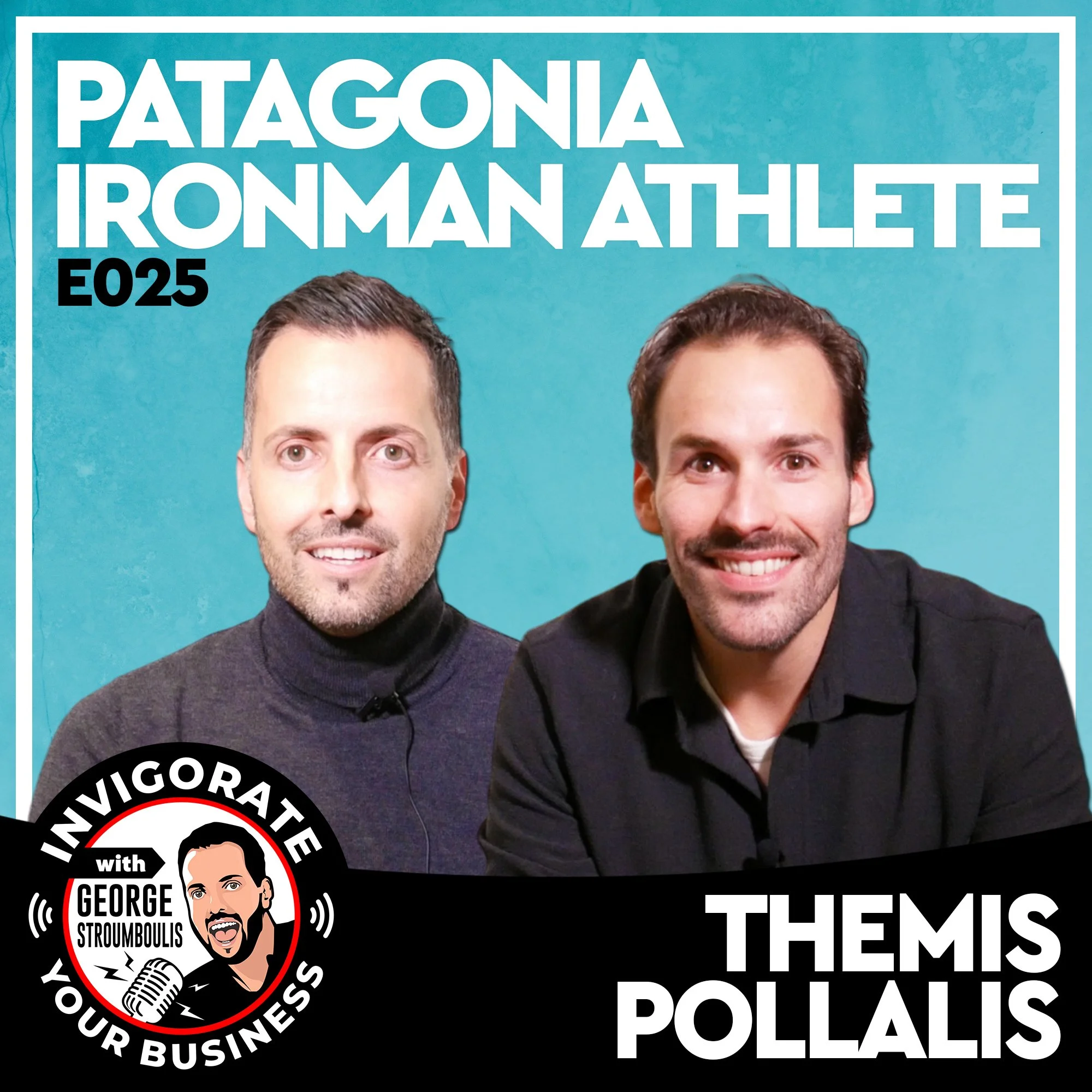
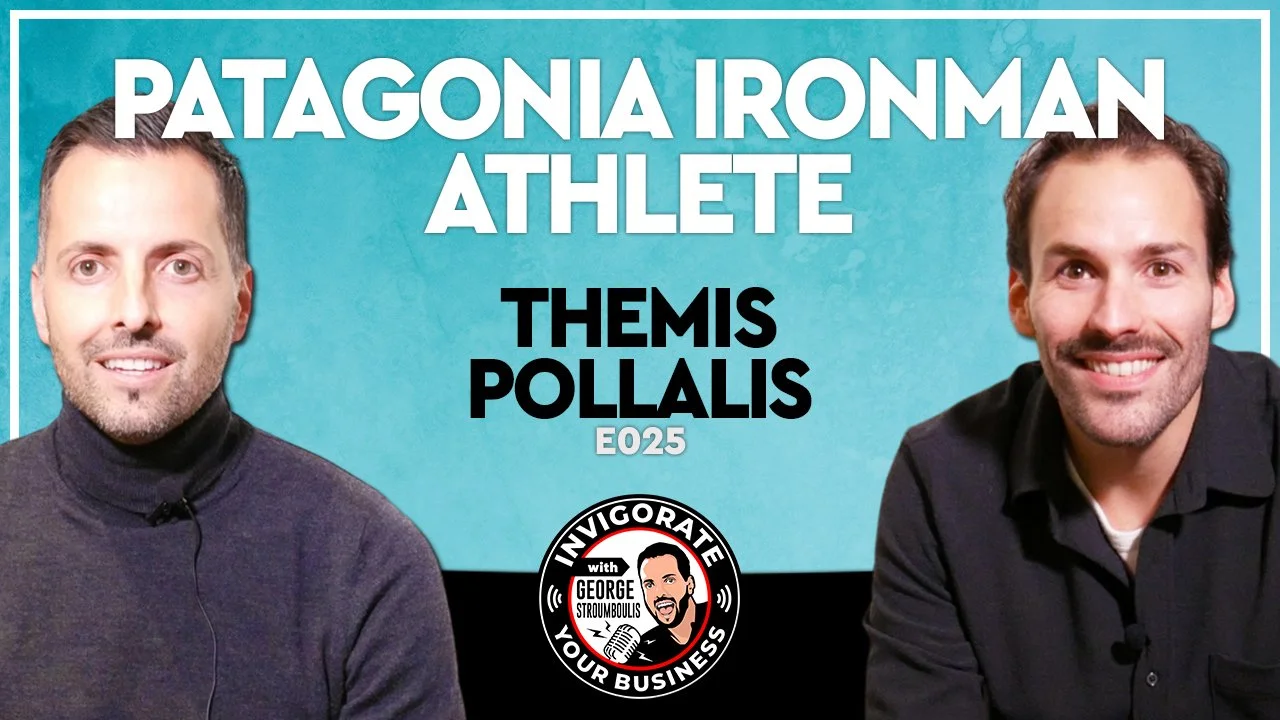
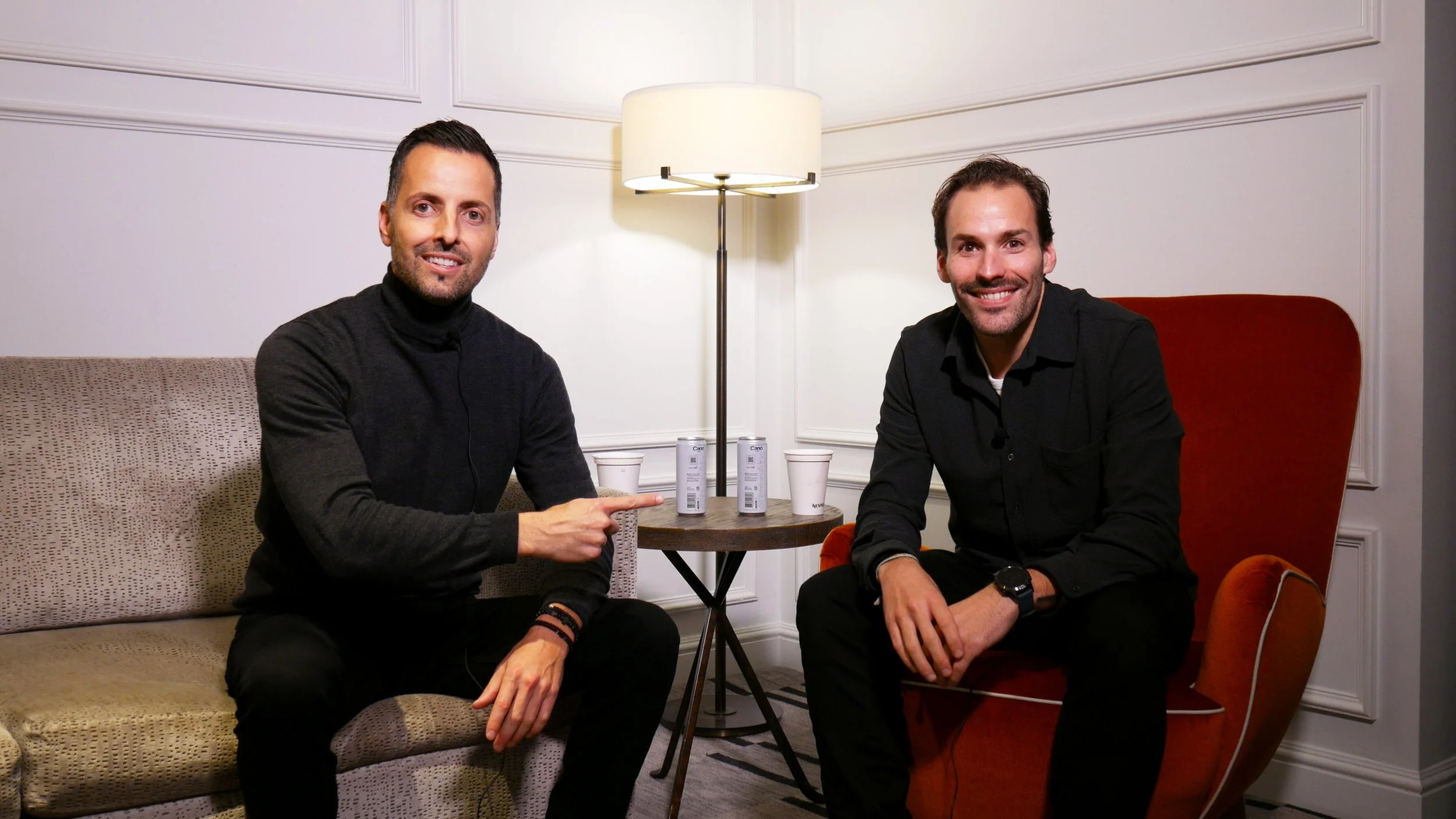
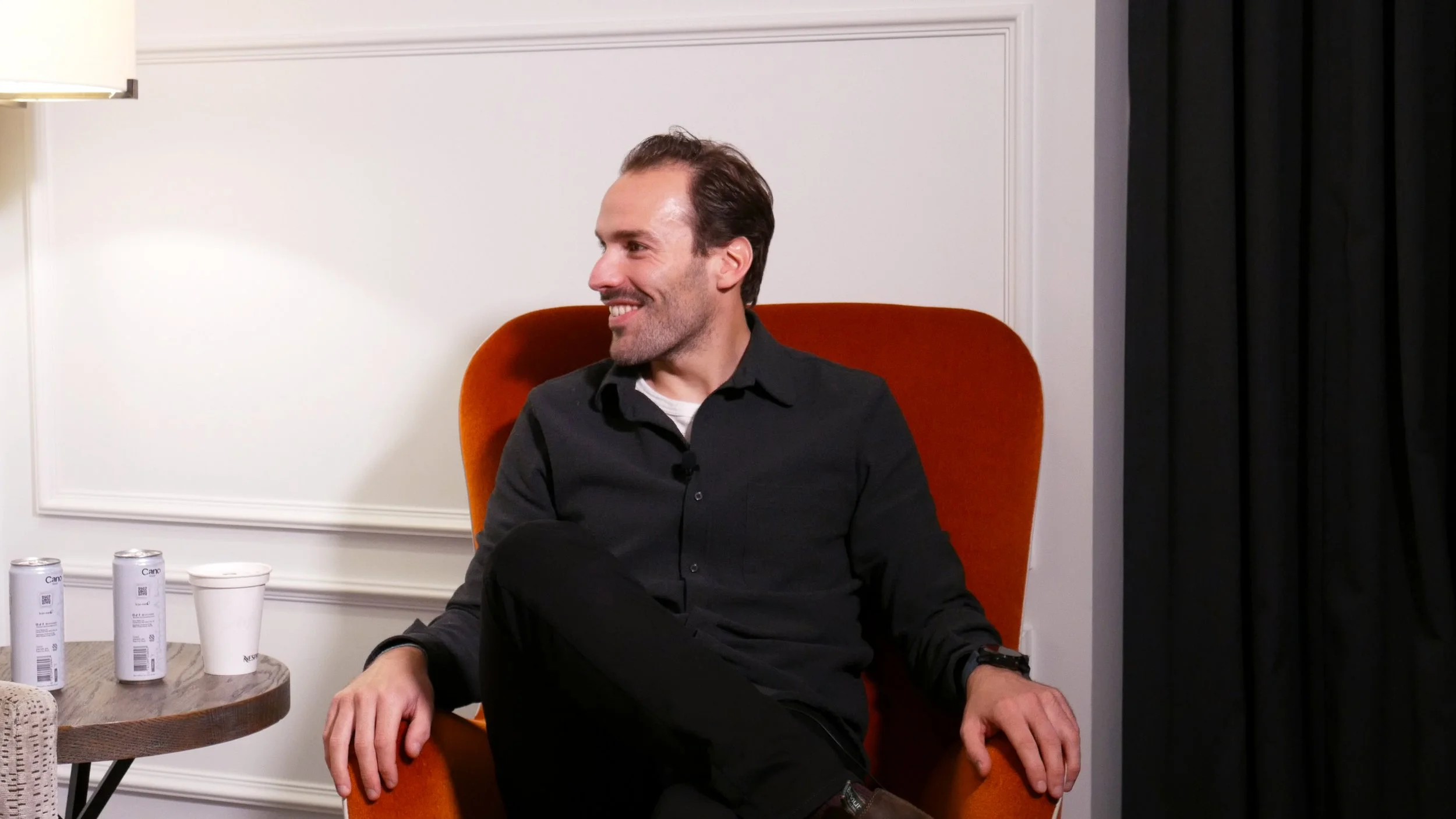
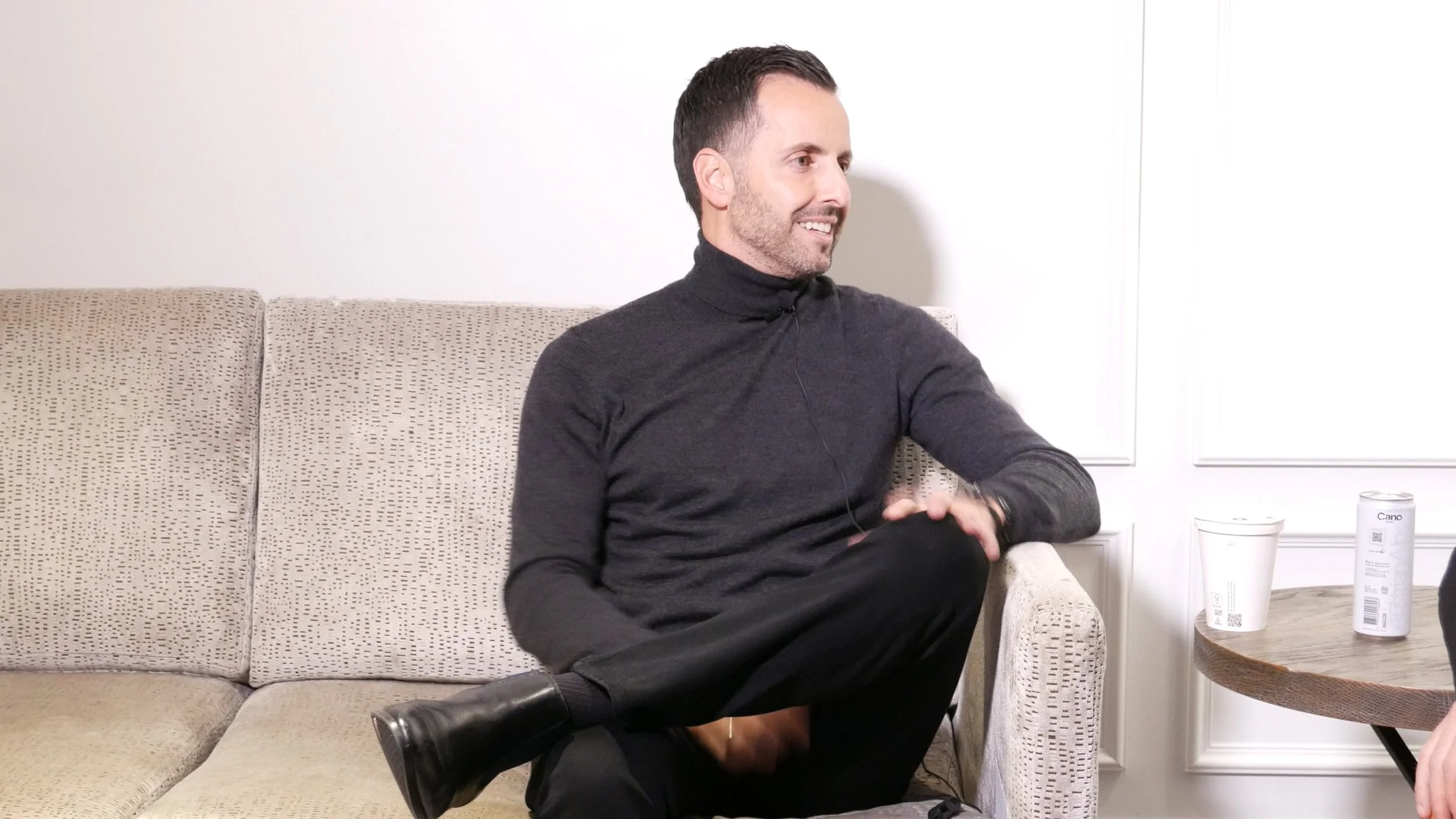
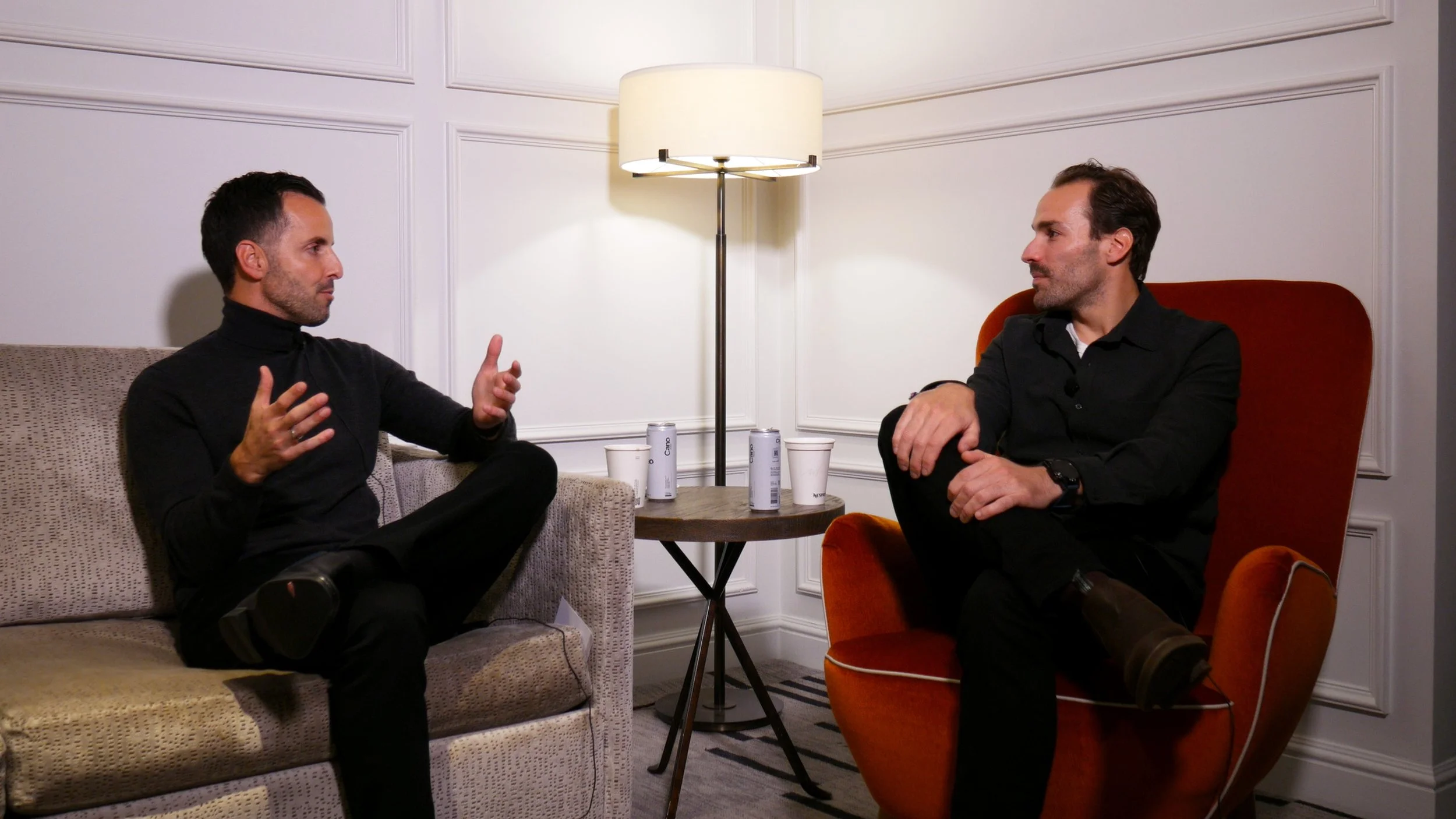
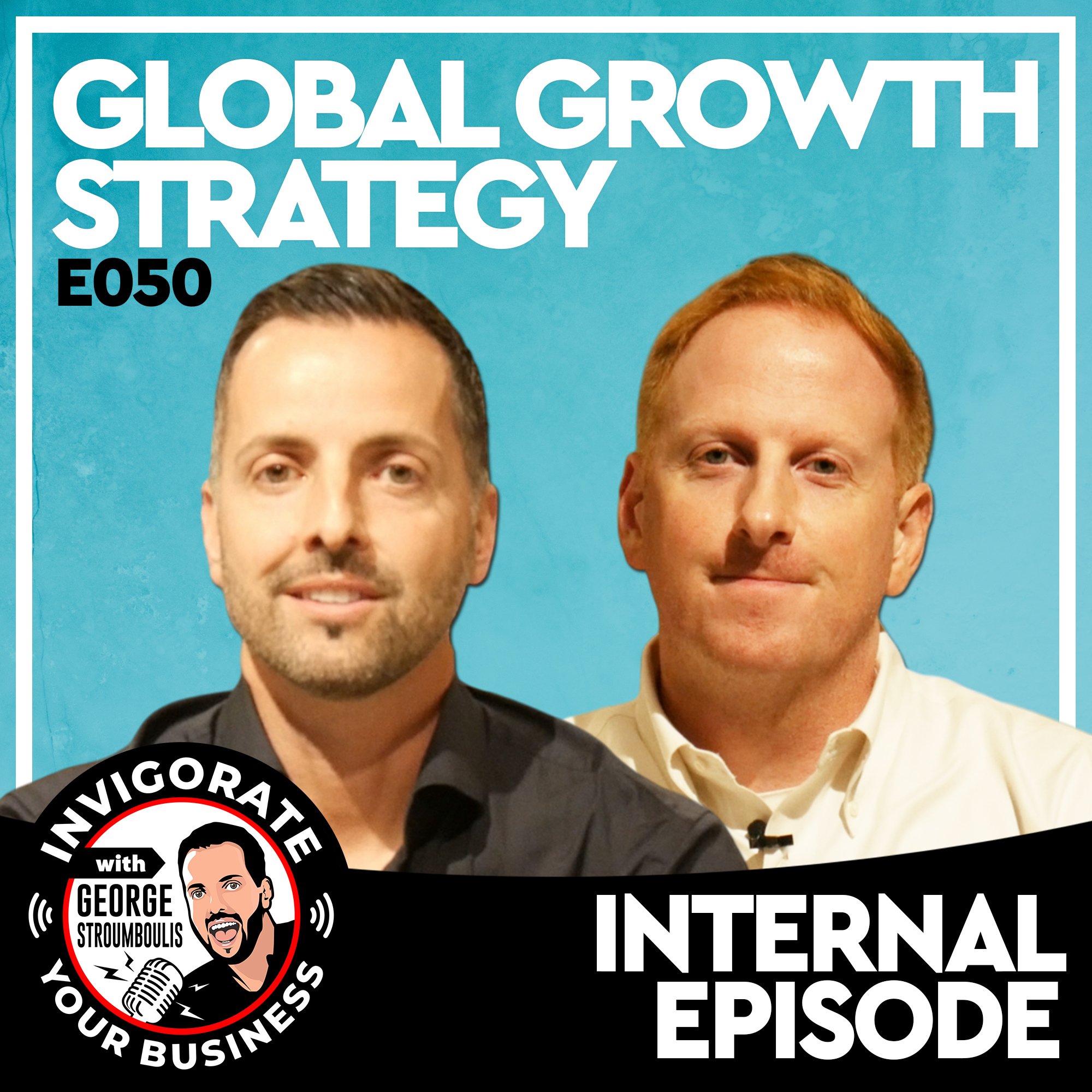

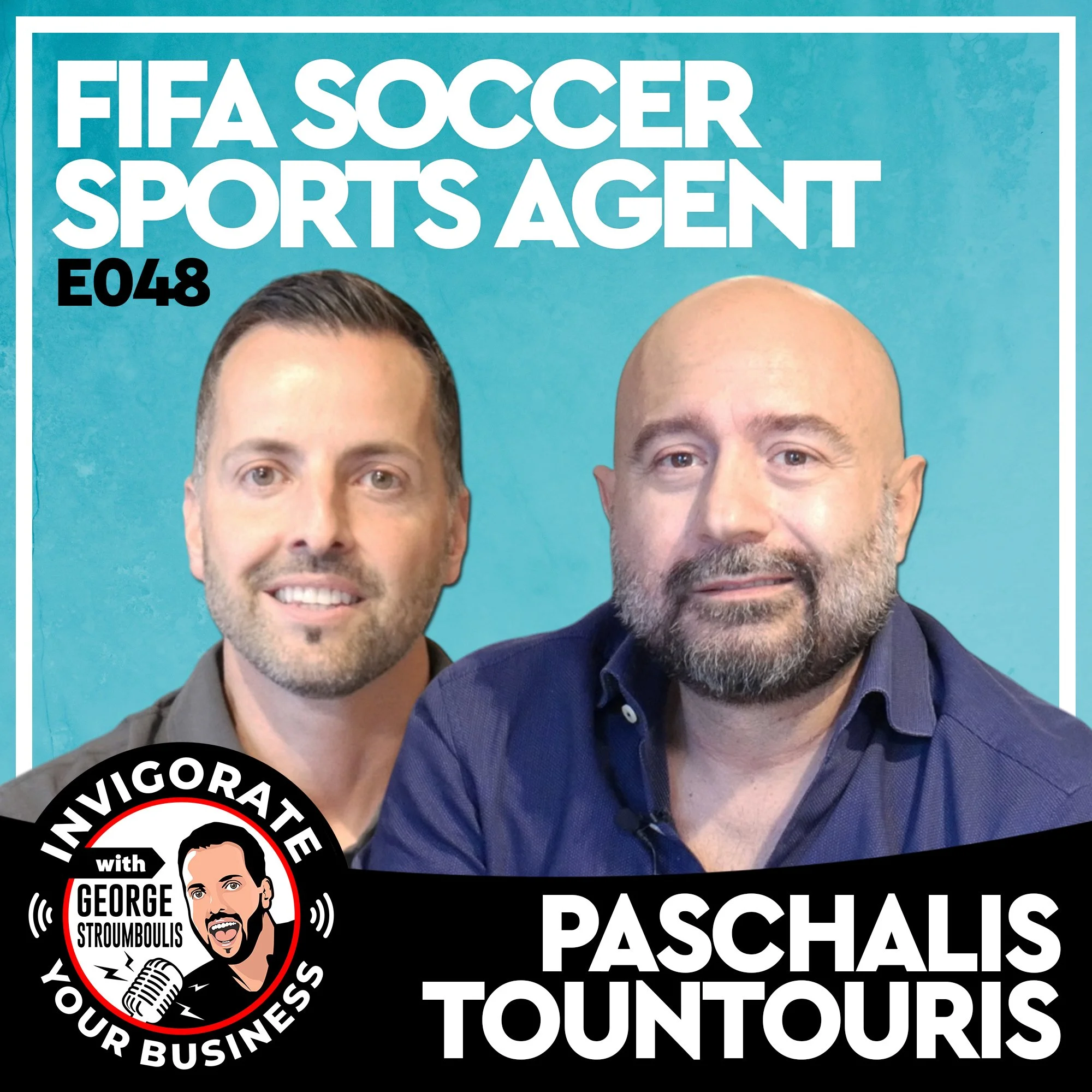
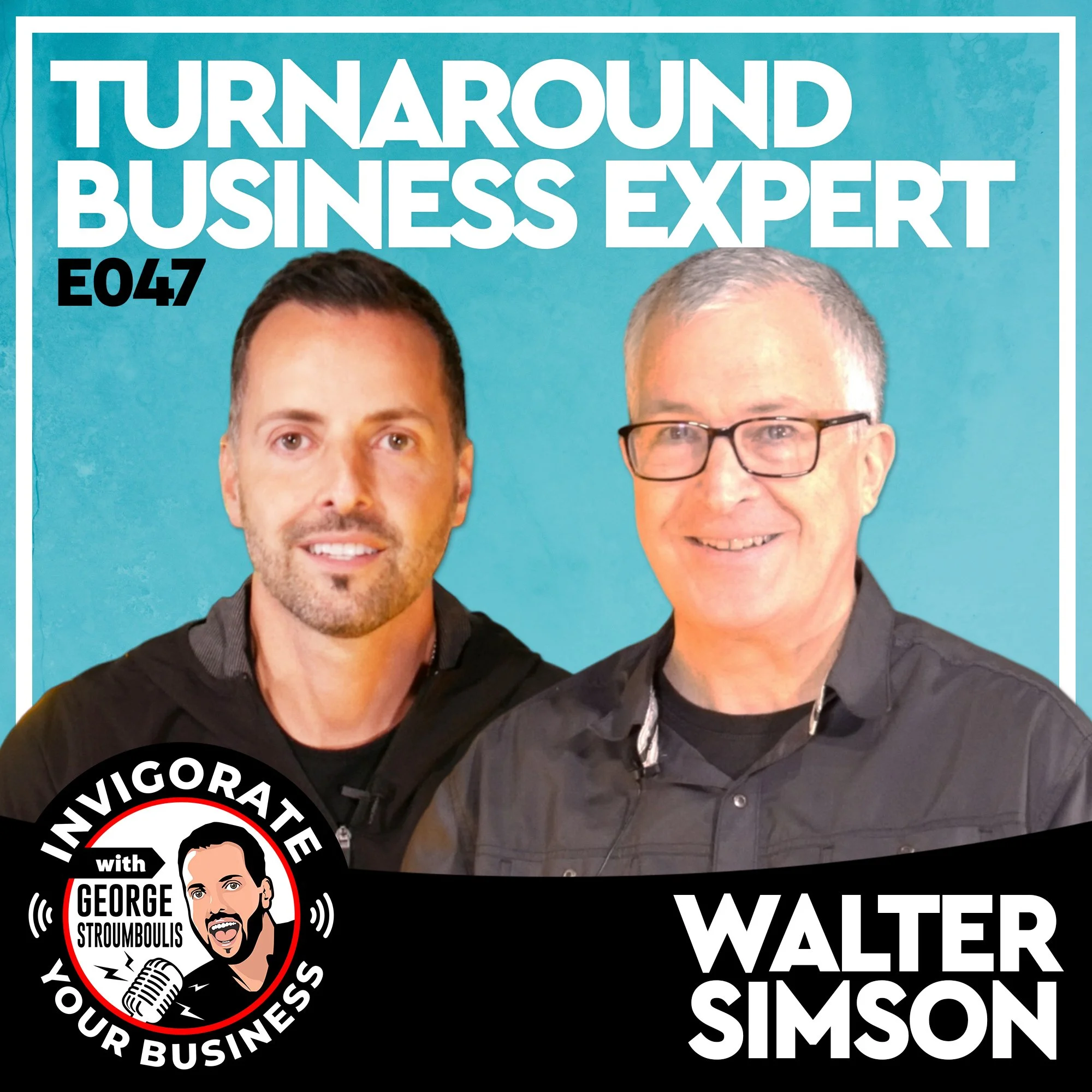
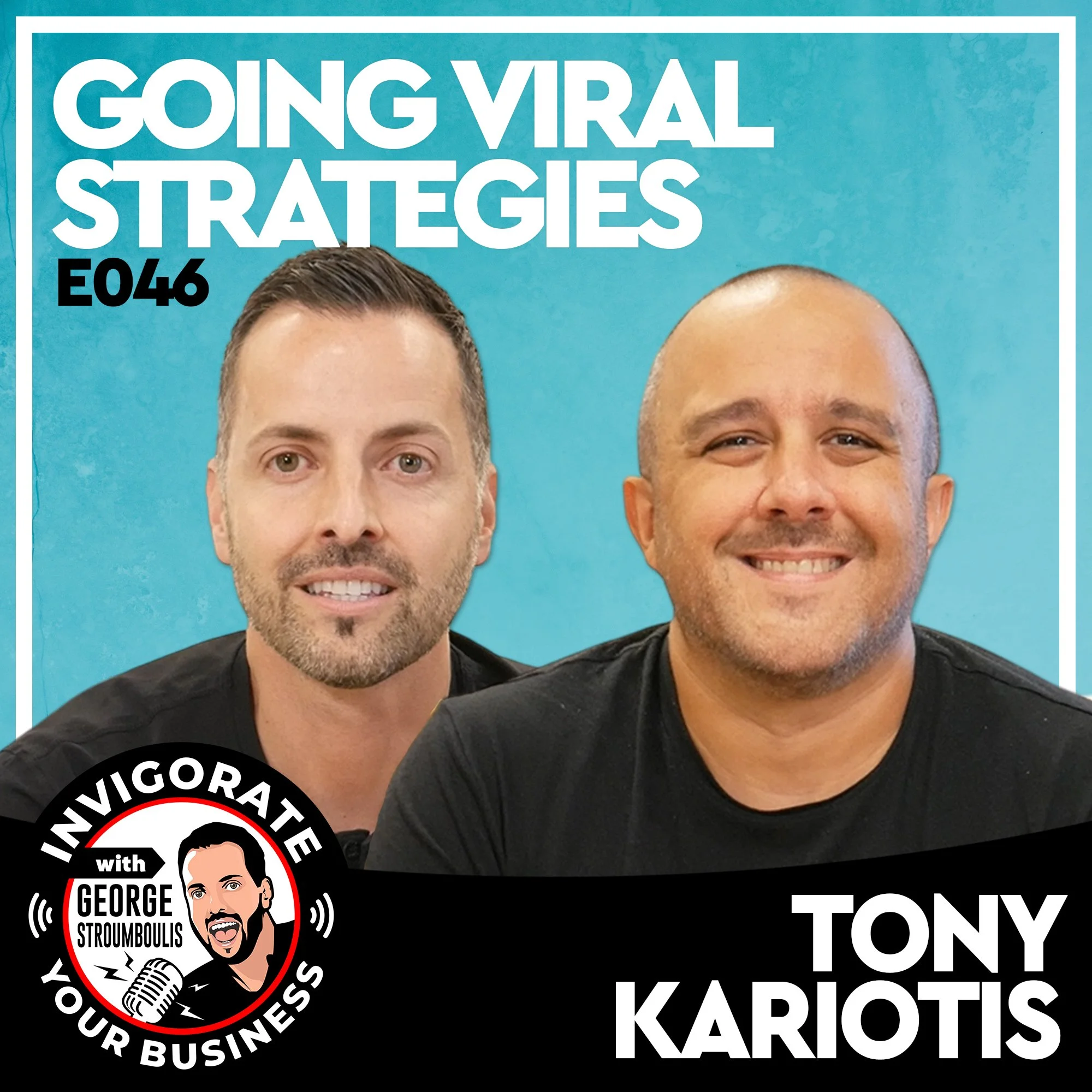

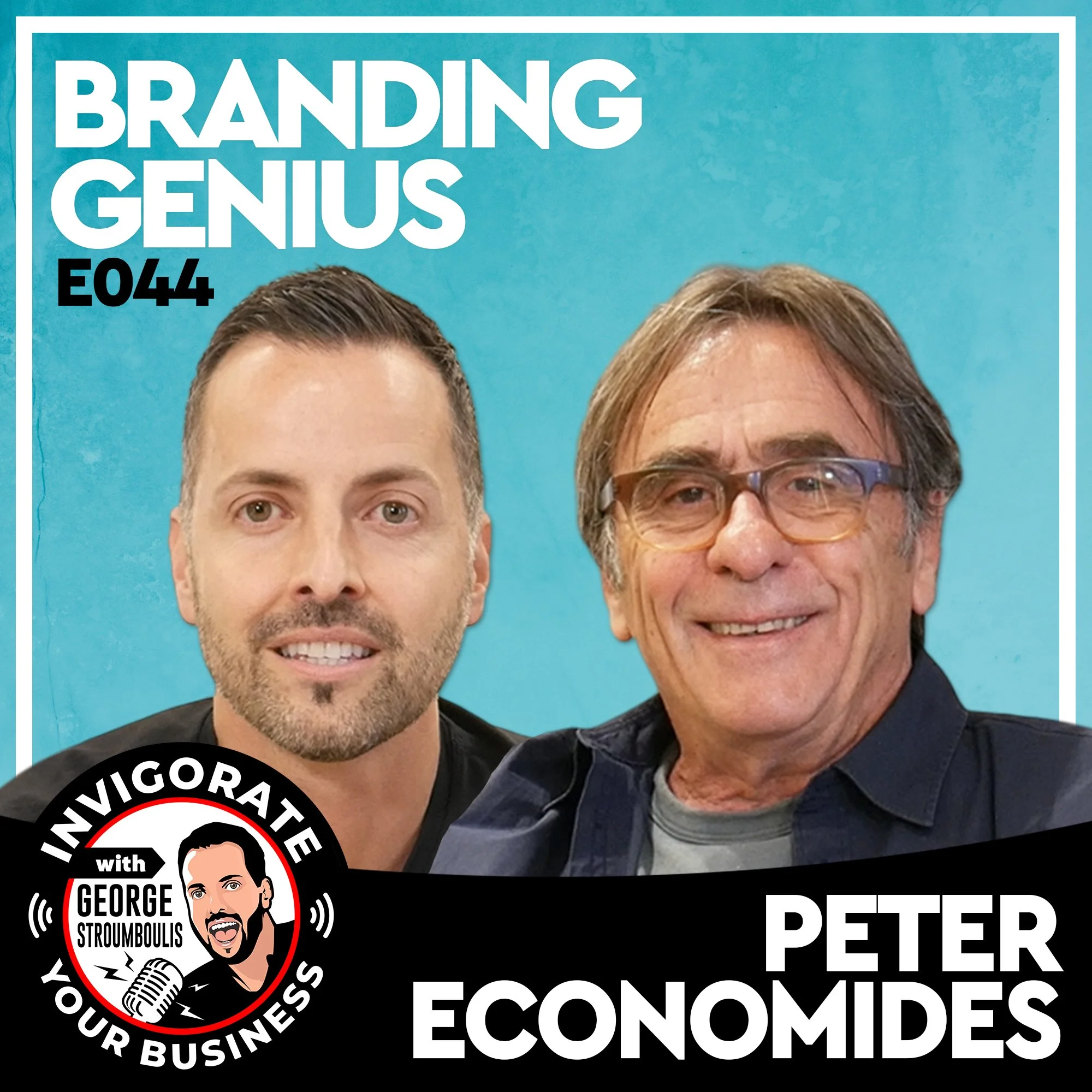
George Stroumboulis sits down with Jim Sogotis in Newport Beach, California on the Invigorate Your Business Podcast to talk about all things financial markets, investments, hedge funds, mutual funds, financial advice and so much more.